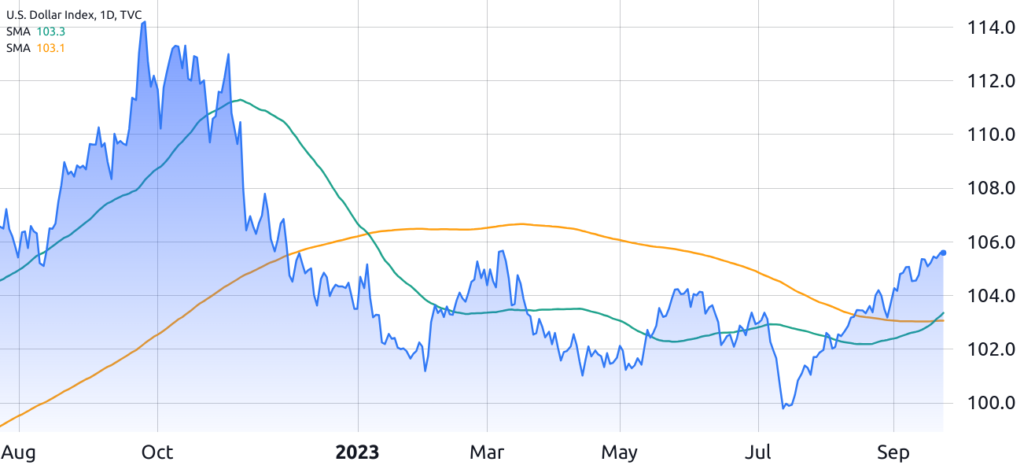The Dollar Strength Index (DXY) recently reached a 10-month high on September 22, indicating growing confidence in the U.S. dollar compared to other fiat currencies. This increase in demand for the dollar has raised concerns about its potential impact on Bitcoin and cryptocurrencies, although these concerns may not be directly related.
The DXY index confirmed a “golden cross” pattern, a signal often seen as a precursor to a bull market, where the 50-day moving average surpassed the longer 200-day moving average.

Despite worries about inflation and economic growth in the U.S., the dollar has shown strength in September. Expectations for U.S. GDP growth in 2024 are lower than the previous four years due to factors like tighter monetary policy, rising interest rates, and diminishing fiscal stimulus.
Fed continue to raise interest rates
Investors are avoiding government bonds in favor of cash positions, with the yield on 5-year U.S. Treasuries at its highest level in 12 years. This reflects a strategy of waiting for better investment opportunities as they anticipate the Fed will continue raising interest rates.
The relationship between a stronger DXY and reduced demand for Bitcoin is not straightforward. While there is decreased appetite for risk-on assets, investors are aware that holding cash does not guarantee stable purchasing power.
As the government raises the debt ceiling, investors face dilution of returns due to increased money supply. This is why scarce assets like Bitcoin and some tech companies may perform well even during economic slowdowns.
If the S&P 500 continues to decline, investors might initially exit risk markets, potentially affecting Bitcoin negatively. However, the analysis overlooks the fact that inflation and recession pressures will likely increase the money supply, favoring Bitcoin as investors seek refuge in alternative assets to protect against “stagflation.”
In conclusion, the DXY golden cross may not necessarily have a net negative impact on Bitcoin, especially on longer timeframes, as it could benefit from increased liquidity in the markets during uncertain economic times.

